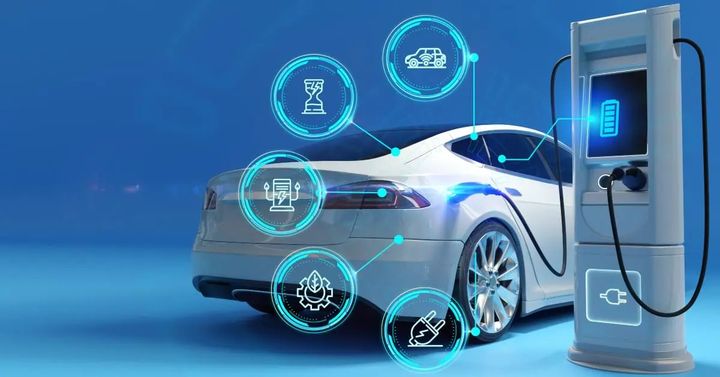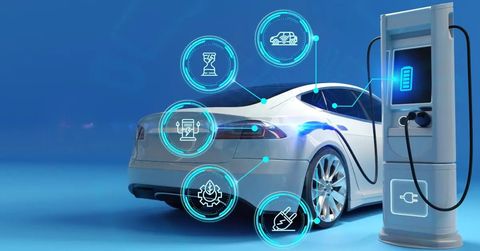
A Guide to Electric Vehicle Rentals in Major Cities
Electric vehicle (EV) car hire is the practice of renting an electric car for a short period, from a few hours to several weeks. This service has emerged as a direct response to a global shift towards environmental consciousness and the growing demand for sustainable travel solutions. For many years, traditional car rentals have been a staple of travel, but they contribute significantly to urban air and noise pollution. EV rental services provide a modern alternative, allowing travelers to experience the benefits of zero-emission transportation without the financial commitment of ownership.
Why Electric Car Hire Matters Today

The rise of electric car hire services is not just a passing trend; it addresses several critical issues in the modern travel and transportation landscape. It solves problems for individual travelers, corporations, and the environment at large.
Who It Affects
Eco-Conscious Travelers: Individuals who prioritize sustainability and want to reduce their environmental impact while on vacation or a business trip.
Business Professionals: Companies are increasingly focused on their Environmental, Social, and Governance (ESG) ratings. Using EV rentals for business travel helps them meet sustainability goals.
Potential EV Owners: Renting an EV is a low-risk way for people to test a specific model, experience the charging process, and overcome "range anxiety" before deciding to buy.
City Dwellers and Tourists: It offers a flexible and quiet mode of transport, allowing them to explore a city without contributing to local pollution.
Problems It Solves
Environmental Impact: EVs produce zero tailpipe emissions, which directly reduces air pollution in cities. This is a significant benefit for public health and urban air quality.
High Cost of Ownership: Owning an electric vehicle involves a large initial investment. Renting an EV makes the technology accessible to a wider audience, as it removes the need to buy, insure, and maintain a vehicle.
Range Anxiety: For many people, the fear of running out of charge in an EV is a major barrier to adoption. Renting an EV for a short trip allows them to become familiar with the vehicle’s range and the local charging infrastructure in a low-stakes environment.
Urban Noise Pollution: The near-silent operation of electric cars significantly reduces noise pollution, especially in dense urban areas, making cities more peaceful and livable.
Recent Updates and Trends
The EV rental market is rapidly expanding, with a projected growth rate of over 15% from 2024 to 2025. This growth is being driven by several key trends and technological advancements.
Fleet Diversification: Rental companies are rapidly expanding their fleets to include a much wider range of EV models. Beyond common compact cars, renters can now find luxury electric sedans like the Hyundai Ioniq 5, SUVs like the Tata Nexon EV, and even specialized commercial EVs. This diversification caters to different needs and budgets, from an affordable city commuter to a premium vehicle for a business trip.
AI and Contactless Services: The booking and rental process is becoming increasingly seamless. Many companies now use mobile apps with AI-driven personalization that allow users to book, locate, and unlock their rental car without needing to interact with a service counter. This "contactless rental" model is a major trend that prioritizes convenience and speed.
Dedicated Charging Partnerships: To address the logistical challenge of keeping a large fleet charged, major rental companies are forming strategic partnerships with charging network providers. For example, some companies are creating dedicated charging hubs at airports and in city centers, ensuring that their rental vehicles are always ready for the next customer.
Expansion of One-Way Rentals: The availability of one-way EV rentals, where a vehicle can be picked up in one city and dropped off in another, is expanding. This is a crucial development for inter-city travel, providing flexibility that was previously limited.
Laws and Policies
Government policies play a pivotal role in shaping the EV rental market. Various regulations and incentives at both national and city levels are accelerating the transition to electric mobility.
Zero Emission Vehicle (ZEV) Mandates: In major global cities, policies are increasingly being put in place that mandate a certain percentage of vehicles sold or operated to be zero-emission. This directly encourages rental companies to invest heavily in EV fleets.
Tax Incentives and Subsidies: Many governments offer tax exemptions and subsidies for the purchase of EVs. While these are primarily for consumers, they also lower the acquisition cost for rental companies, making it more financially viable for them to electrify their fleets. In India, for example, the FAME-II scheme and various state-level policies provide significant incentives for electric vehicle adoption, which in turn supports the growth of rental services.
Urban Low-Emission Zones: Cities are creating designated low-emission or zero-emission zones where only EVs or other clean vehicles are allowed to enter or park for free. This makes an EV rental a more practical and desirable option for navigating these restricted areas.
Dedicated Parking and Charging: Many municipalities offer free or discounted parking for EVs in public spaces. Some cities even have dedicated parking spots with charging facilities, which is a major convenience for a traveler who needs to park and charge their rental EV.
Tools and Resources
For those planning to rent an electric car, a variety of tools and resources can simplify the process and enhance the experience.
Booking and Car-Sharing Apps:
Major Rental Companies: Websites and apps of established rental companies often have dedicated sections for their EV fleets.
EV-Specific Platforms: There are services that focus exclusively on electric and hybrid vehicles, offering a wide selection and specialized support.
Charging Network Apps:
ChargePoint, PlugShare, Electrify America: These apps provide real-time information on the location, availability, and type of charging stations (Level 2 or DC Fast Chargers) in an area.
Route Planning Tools:
A Better Routeplanner (ABRP): This app helps with long-distance travel by planning routes that include optimal charging stops based on your vehicle's range and your desired speed.
Online Calculators:
Various websites offer calculators that compare the total cost of an EV rental (including electricity costs) to a gasoline car rental, helping you make an informed financial decision.
Frequently Asked Questions
Are electric cars more expensive to rent than gasoline cars?
The rental price for an EV can be comparable to or slightly higher than a similar-sized gasoline car. However, the savings on fuel (electricity is generally cheaper than gasoline) can often make the overall cost of the trip lower.
What is the charging process for a rental EV?
The charging process is similar to that of a personal EV. You will use the charging cable provided with the car to connect to a charging station. The rental company will provide instructions on how to use the charging network, which may involve a specific app or charging card.
Do rental companies charge for electricity?
Policies vary by company. Some rental providers include a certain amount of charging in the rental price, while others may require you to pay for electricity directly at the charging station, similar to how you would pay for gas at a pump. It's important to check the terms and conditions before booking.
What happens if the battery runs out?
Most rental agreements have a roadside assistance policy for this scenario. If the battery runs out, you would typically contact roadside assistance, and they will arrange for a tow to the nearest charging station. This is similar to running out of fuel in a gasoline car.
Conclusion
Electric car hire is quickly becoming a mainstream option in major cities worldwide, representing a significant step forward for sustainable travel. It provides a flexible and practical solution for a variety of travelers, from eco-conscious tourists to potential EV owners. As governments continue to support electric vehicles and technology makes the rental process even smoother, EV car hire is set to play a crucial role in the ongoing transition to an electric, eco-friendly future.






